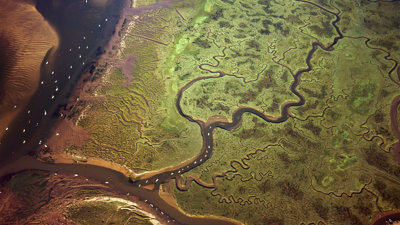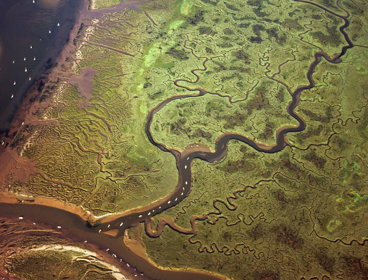Conducting research on and with people is the focus for many institutions when considering ‘ethics’. By taking part in a research project, participants can be put at risk of potential harm.
This risk is exacerbated in resource-poor and fragile contexts, where overarching, existing safeguarding measures may not be in place and when working with children and vulnerable adults. In these contexts, additional issues and mitigation measures should be considered.
Regardless of the setting or participant, research is voluntary, and participants immediate and long-term wellbeing is of the upmost importance.
A comprehensive protection protocol should be in place from the conception of the project, including but not limited to, consideration of a participant’s role, the subject matter, cultural sensitivities, and the long-term impact the research and its findings might have.
Key points to consider
- Permissions: appropriate permissions should be obtained from participants, in a way such that they fully understand the research purpose, process and their role, and how their data will be used. If required for comprehensive communication and understanding, written information should be in the native language.
- Safety, privacy and confidentiality: the potential ethical risks regarding the safety and security of participants and the steps that need to be taken to mitigate these must be considered.
- Data protection and privacy: participant data should be stored, used and disposed of correctly. It’s best to avoid collecting data which is not necessary, and to consider whether data can be identifiable and should be codified or completely anonymized. See European Commission, Directorate-General for Research and Innovation (2015).
- Photographs, imagery and video: appropriate permissions should be sought from all of those whose image is captured in photographs and video. Participants must understand what their image is being used for and how it will be distributed, should permission be granted. This includes providing age-appropriate information to children to allow for informed decisions about participation and their images being used, and permission from a parent or legal guardian.
- Research involving categorization: by race, ethnicity, sex, gender identity, sexual orientation, religion, age, (dis)ability, socio-economic status, or other socially constructed or socially relevant groupings should carefully consider appropriate justification of definitions, and potential implications and consequences for participants, and use inclusive, respectful, non-stigmatizing language. More information can be found in Nature’s editorial policies.
- Wellbeing: the potential impact of the research on participants’ wellbeing must be considered, including whether or not questions asked will raise sensitive issues which could cause distress, or put the participants at risk. If they are, then appropriate measures must be put in place.
- Working with children and vulnerable people: additional elements should be considered around consent, potential for exploitation, gatekeepers and access, power dynamics, compensation and legal requirements
- Compensation/expenses: it should be considered if and how participants should be compensated for their time.
There are a number of very good resources listed below which explore these points, and more, in detail.
Questions to think through
- Do your participants fully understand their role? Have you got their permission?
- How will you safely and securely store participants’ data, and dispose of this afterwards?
- Could participants be in a socially vulnerable position or could the research put them in one? Do participants need to be anonymous?
- Do you have permission to capture and use imagery and video?
- If using categorization by protected characteristics or other socially constructed groupings, are you doing this in a justifiable, respectful and non-stigmatizing way?
- Is your participants’ wellbeing being put at risk, through the questions you are asking or generally through their participation?
- If working with children and vulnerable people, have you considered additional measures? Is it necessary to work with these participants?
- Are participants being compensated and if so how will you determine what is an appropriate method and level of compensation within a given setting?
Resources
Best Practice Guidance and Ethical Fieldwork Code of Conduct
Oxford Central University Research Ethics Committee (CUERC)
Best practice guidance for use when planning your project. Elements particularly relevant to the topic of working with research participants include:
- Ethnographic and other types of qualitative research.
- Elite and expert interviewing
- Competent youths
- Payment and incentives in research
- Internet mediated research
- Psychological distress
- Data collection, protection and management
- Conducting research interviews
Ethical Research in Fragile and Conflict Affected Contexts: Guidelines for Applicants
UK Research and Innovation in collaboration with UNICEF Office of Research
A framework with seven criteria covering the full project cycle for researchers to work through to ensure all elements of the project are ethical. There is a focus on research in fragile and conflict affected contexts, however many aspects are relevant in all settings.
Relevant points for working on and with people include around consent, data protection and confidentiality, vulnerable people and safeguarding during dissemination.
Framework for research ethics
UKRI Economic and Social Research Council (UK)
A framework for research ethics to help researchers consider ethics issues during the complete lifecycle of a project. Key sections include:
- Risk and benefit
- Consent
- Research with potentially vulnerable people
- Data requirements
This page also includes ethics statement examples and links to further useful resources, including forms and templates and guidance.
Nature Communications Earth and Environment editorial policies on research ethics
Nature
A set of policies outlining the standards by which researchers must abide by for publication. Provides useful points to consider more broadly around human participants in research, including studies involving vulnerable groups, and topics of race, ethnicity, racism, sex, gender and sexual orientation.
Ethical assessment: safe, responsible and ethical research
Royal Geographical Society (with IBG)
A sample ethics assessment form accompanied by key points to consider before filling out such a from.
Ethics for researchers: facilitating research excellence in FP7
European Commission, Directorate-General for Research and Innovation
Details a range of ethical issues, including sections on data protection and privacy and informed consent, which are of particular relevance when working on/with people. The document also provides ‘Three Tips to Be More Ethically Prepared’ and ‘Twelve Golden Rules to Ethical Research Conduct’.
The Society does not take responsibility for the content of external sites. Inclusion on this page does not equate to an endorsement of any content or organisation. Please contact the external site for questions regarding individual resources.

